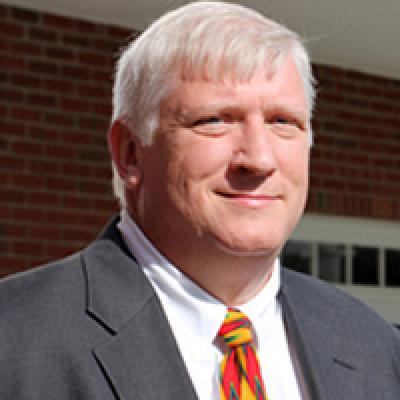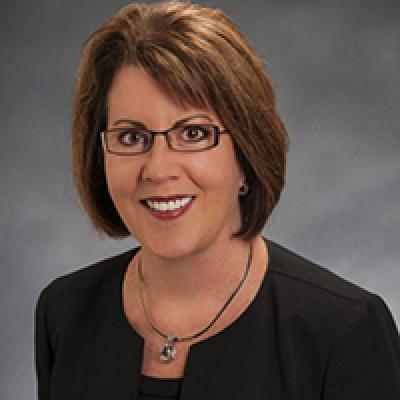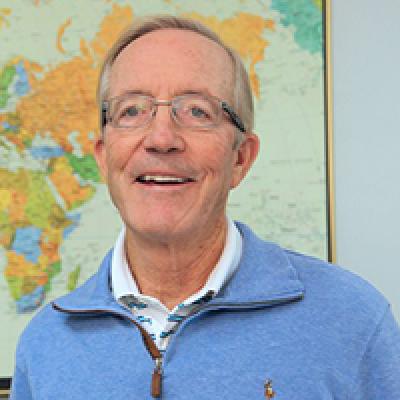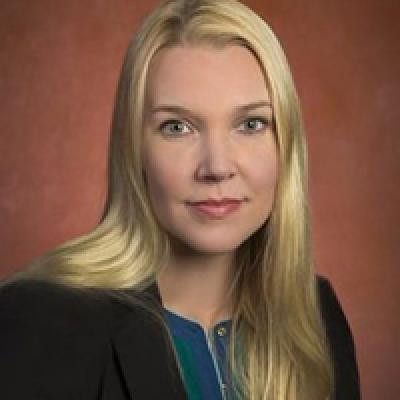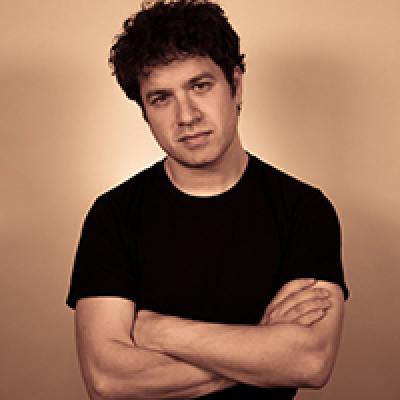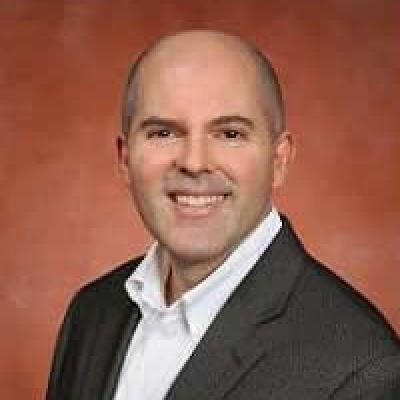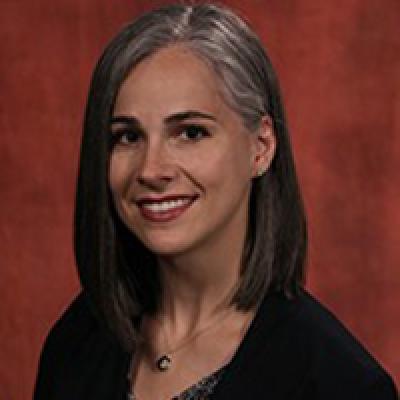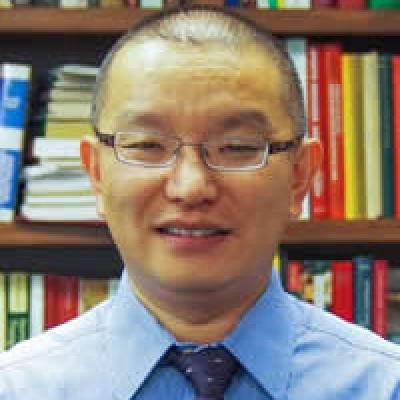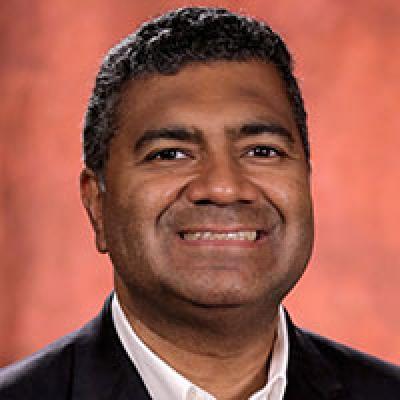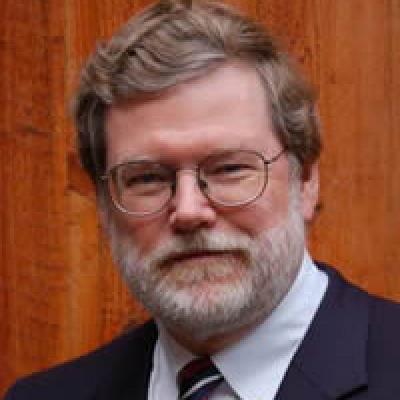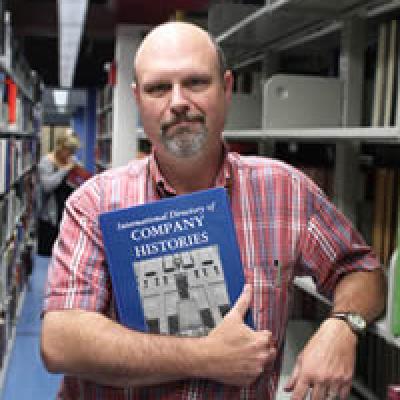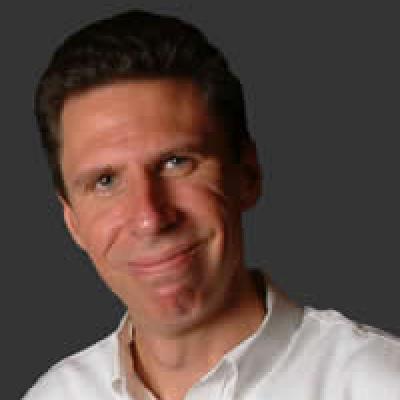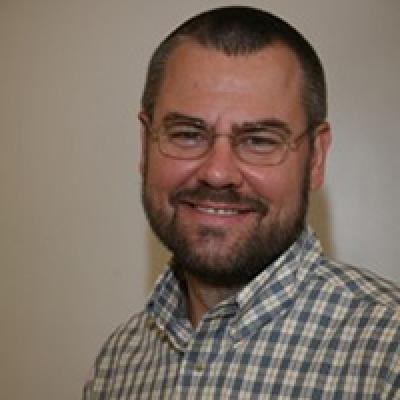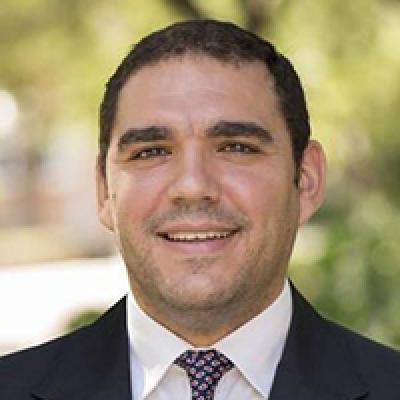Richard M. Benham, JD, College of Law
Richard M. Benham , JD, College of Law
His role: Professor Benham joined the College of Law in spring 2014 as Entrepreneur in Residence. He directs and teaches in the Business Law Clinic at Florida State University. Prior to earning his law degree, Professor Benham had extensive experience in the information technology field and co-founded a software development consulting company where he served as chief executive for seven years. Admitted to the Florida Bar in 2005, he has counseled many small businesses in areas including entity formation, capital acquisition, business planning, and start-up business operations. Professor Benham’s projects include co-founding a business developing software for the nano-materials industry and a start-up fabricating magnet system components for the global fusion reactor project (ITER). Most recently, he co-founded a non-profit “maker space” that provides an open creative space for students, inventors and artists.
Alicia Craig-Rodriguez, DNP, College of Nursing
Her role: Alicia (Ali) Craig-Rodriguez (DNP, Florida State University, 2016, MBA, University of South Florida, 2003) joined the Florida State University faculty in 2016 where she now serves as the College of Nursing’s Entrepreneur-in-Residence, Jonas Nurse Leader Scholar and DNP Family Practice Program Coordinator. Before assuming her current role, she served as President and Chief Operating Officer of two nationally recognized clinical research organizations. Ali is committed to empowering the next generation of health care providers to advance their knowledge in the areas of leadership, clinical excellence and entrepreneurship in clinical practice. She teaches Finance, Economics & Entrepreneurship in the graduate program and is in the process of integrating entrepreneurship principles in the undergraduate nursing curriculum. She is a nationally-certified Family Nurse Practitioner who is dedicated to serving patients with chronic illnesses, assisting them in restoring function and achieving optimal health. She is a lifelong learner and is currently working on her national certification in the area of functional medicine.
Michael Devine, PhD, College of Engineering, Industrial and Manufacturing Engineering
His role: Mike Devine is the Entrepreneur in Residence and Professor in the FAMU-FSU College of Engineering, Tallahassee, FL. For 18 years he was as a Professor of Industrial Engineering and Director of the Science and Public Policy Program at the University of Oklahoma. From 1987-1995 he was Associate Vice President for Research at Florida State University. Among many other responsibilities, he initiated an active and successful technology transfer program that substantially increased patenting and licensing activity, including a license for Taxol synthesis that generated over $350 million in royalties. From 1995-2000 he was Vice Chancellor for Research at The University of Tennessee, Knoxville. In 2000, he moved back to Tallahassee as Executive Director of the non-profit MDS Research Foundation and SynCure Cancer Research Foundation, where he served until 2012. From 2009-2012 Dr. Devine was also the Executive Director of FL CURED in the FSU College of Medicine. For the past several years he has taught a course at “Technology Entrepreneurship and Commercialization” (first developed in 1994) and initiated other programs to promote innovation and entrepreneurship in the College of Engineering.
Molly Hand, PhD, College of Arts and Sciences
Her role: Molly Hand (Ph.D., Florida State University, 2009) is a scholar and editor with considerable experience in academic and technical writing, editing, and research. She is Entrepreneur in Residence in the College of Arts and Sciences, where she serves as Internship Program Director for the Editing/Writing/Media (EWM) concentration in the Department of English and teaches EWM and literature courses. Before assuming her current role, she taught, worked in state government, and worked as an independent contractor, providing editorial and research services primarily for scholarly works: critical editions, scholarly monographs, a peer-reviewed journal. Currently, she is working to encourage critical conversation around professionalism among English students, to build a greater network of internship opportunities in the Tallahassee area and beyond, and to establish a structure of support and resources around the internship program to provide students with the necessary tools for success and career readiness.
Darren Hoffman, College of Motion Picture Arts
His role: Darren Hoffman is an award winning music and film producer originally from Miami, Florida, currently residing in NYC. A Basin Street Scholar of Jazz Studies at The University of New Orleans and graduate of Florida State University’s College of Motion Picture Arts, Hoffman has produced over 400 traditional and interactive music recordings since 2001, founded three music, media and tech companies – Tutti Dynamics (2006), Guava Records (2016) and Melody Console (2021) and co-founded Uncle Nef with World-renowned drummer and singer Shannon Powell.
In 2012 Hoffman’s company, Tutti Dynamics, released a next-generation interactive music and video education platform, Tutti Music Player, which was adopted by Berklee College of Music as required course materials for incoming students. Also in 2012, Hoffman began producing annual recordings and interactive video programs with Wynton Marsalis & The Jazz at Lincoln Center Orchestra for over 2000 high schools and helped teach tens of thousands of students over 8+ years. In 2013, Hoffman’s documentary feature film, TRADITION IS A TEMPLE, premiered by The Film Society of Lincoln Center and is distributed by The Orchard Film Group. In 2015, in collaboration with Christian Scott aTundé Adjuah, Darren designed and released the STRETCH MUSIC APP, the first of its kind interactive music album release and launched a new platform based on the technology branded as Melody Console in 2021.
Bruce Manciagli, MS, College of Social Sciences and Public Policy
His role: Bruce’s career has focused on building the capacity of individuals, organizations, and communities through education and training, leadership and organizational development, as well as strategic funding and resource development to more effectively address social and environmental problems and create lasting social value. He has a long-standing commitment to Social Entrepreneurship and Innovation, having co-founded or founded three social enterprises (one of them a national award winner). As Social Entrepreneur in Residence in Florida State University’s College of Social Sciences and Public Policy, he’s led the development of a Social Entrepreneurship & Innovation (SEI) Specialization within the Interdisciplinary Social Science Program and co-led the development of an SEI Concentration within the Jim Moran College of Entrepreneurship. With a background in both social entrepreneurship & innovation and the social foundations of education, he views how students learn is as important as what they learn.
Emily Pritchard, PhD, College of Medicine
Her role: Dr. Pritchard completed her Ph.D. in Biomedical Engineering at the University of Tennessee, Knoxville, where she also completed training and conducted research at the Oak Ridge National Laboratory Nanoscale Science and Technology Laboratory and Cornell Nanoscale Facility as a National Science Foundation Graduate Research Fellow. Her research interests include medical devices, imaging, and sensing systems for clinical diagnostics and therapeutics. She spent 10 years running her own boutique consulting firm helping med-tech startups identify and develop winning technologies and now mentors FSU students of many disciplines. Dr. Pritchard serves as a reviewer at the National Science Foundation and National Institutes of Health, and is vice-chair of the IEEE Tallahassee Area Section. She is currently conducting clinical studies at Tallahassee Memorial Hospital, the Mayo Clinic of Florida, and the Balance and Movement Disorders Clinic in Tallahassee. During her time at FSU, Dr. Pritchard has taught at the FAMU-FSU College of Engineering, College of Medicine, and Jim Moran College of Entrepreneurship where she is an Entrepreneur in Residence developing new curriculum and mentoring student entrepreneurial projects. Dr. Pritchard also serves the Office of the Provost as Director of FSU-Mayo Clinic Collaboration, where she coordinates university-wide collaboration efforts with new internships, course materials, and educational programs.
Qinchun Rao, PhD, Human Sciences, Nutrition Food & Exercise Sciences Assistant Professor
His role: Dr. Qinchun Rao has a Ph.D. in Food and Nutrition from Florida State University. His research interests lie in utilizing food chemistry, especially immunochemistry and physical chemistry, as a tool to answer questions arising in both food safety and food quality disciplines. His research related to food safety primarily focuses on the development of rapid methods for the detection of harmful or prohibited substances in food products such as undeclared allergenic food residues (AFR). His research related to food quality primarily focuses on studying 1) the fundamental mechanisms and external factors influencing the interactions of proteins and other ingredients in foods and 2) the bioavailability of nutrients and bioactive components in foods.
Cesar Rodriguez, MD, College of Medicine, Department of Biomedical Sciences Research Faculty I and Entrepreneur in Residence
His role: Cesar is a member of the research faculty and entrepreneur in residence in the Department of Biomedical Sciences at the College of Medicine. His focus is computer-aided design of engineered cells and the development of therapeutic cells. Cesar attended Howard University School of Medicine. He completed clinical training and research fellowships at UPMC Mercy Hospital, Yale, and Stanford University. In the San Francisco Bay Area, Cesar engaged in entrepreneurial and intrapreneurial efforts. He was the Research Lead at Genome Compiler, a startup that was acquired by Twist Bioscience. He was a Senior Research Scientist in the first bioengineering group at Autodesk Research. Cesar rejoined FSU in 2015. At FSU, he cofounded the FSU International Genetically Engineered Machine (FSU iGEM) and Biomedical Entrepreneurship Mentorship (BIOMEME) programs. Cesar teaches at the Colleges of Medicine, Engineering, and Entrepreneurship. He has developed two new courses; Biomedical Innovation and Entrepreneurship and Introduction to Synthetic Biology. Cesar advocates for the perspective that bioengineering requires excellence in empathy, curiosity, and ingenuity.
Raymond B. (Vic) Vickers, PhD, College of Criminology and Criminal Justice, Director of Institute for the Prevention of Financial Fraud
His role: Dr. Vickers, whose background includes a law degree and a Ph.D. in economic and business history, served for four years as Assistant Comptroller of Florida, the Chief of Staff of the Florida Department of Banking and Finance. As an attorney, he has represented more than 100 financial institutions, including community banks, regional banks, Wall Street banks, and international banks. He is also the author of Panic in the Loop: Chicago’s Banking Crisis of 1932, which won the Silver Medal in the 2012 Independent Publisher Book Awards for the Finance/Investment/Economics Category;and Panic in Paradise: Florida’s Banking Crash of 1926.
Trip Wyckoff, University Libraries
His role: Trip serves as FSU’s Entrepreneurial Outreach Librarian, providing research assistance to faculty and students starting businesses. Additionally, library research and tools to support Entrepreneurs-in-Residence, Deans, and administrative units of FSU. The Entrepreneurial Outreach Librarian helps to identify and arrange with other library liaisons new items for the library’s collection targeting “entrepreneurship.” The Entrepreneurial Outreach Librarian also provides support for local and regional business support institutions (like the public library, DOMI Station, SBDC, and EBV for veterans).
Additional members of the Jim Moran Faculty Associates are:
Ken Baldauf, MS, Director, Program in Interdisciplinary Computing
His role: Ken Baldauf joined the Florida State University faculty in 1998 to coordinate a campus-wide computer literacy effort. Since then, Ken has developed courses in computer fluency, management information systems, digital media, object-oriented programming, web design and web development. He developed one of the first online courses at FSU in 1998, and has been devoted to developing effective online teaching systems and methods ever since. Ken is currently the Director of FSU’s Program in Interdisciplinary Computing, has authored several textbooks, produces a weekly tech news podcast for tech teachers, and has designed the online learning framework for Intro Computer courses titled Emerge with Computers. In recent months Ken has been actively researching innovation frameworks and innovation centers with plans to bring the benefits of this research to institutions of higher education. Find out more about Ken at www.techminded.co.
Joseph Calhoun, College of Social Sciences and Public Policy
His role: Joseph Calhoun is an Associate Teaching Professor in the Department of Economics and the Director of the Gus A. Stavros Center for the Advancement of Free Enterprise and Economic Education at Florida State University. He also teaches some upper-division courses, including the newly created ECO 3041 Personal Finance. He is also responsible for training and mentoring new graduate student teaching assistants for their initial teaching responsibilities at FSU.
A graduate of Illinois State University with a BS in finance and economics and of DePaul University with an MBA, he began his career in the health care industry before leaving to become an economist. His Ph.D. is from the University of Georgia under the direction of David Kamerschen.
Dr. Calhoun has received numerous teaching awards including the Outstanding Graduate Student Teaching Award at the University of Georgia, the Undergraduate Teaching Award at FSU in 2008 and 2016, and six times received the Service Excellence Award for Teaching from Phi Eta Sigma at FSU.
Horacio Rousseau, College of Business
His role: Professor Rousseau’s main research focuses on sustainable development, looking to understand how organizations can effectively promote change regarding social and environmental issues. I do this by studying various organizational and community-level factors. Organizational factors include governance, top management team orientation, and firm-level strategies. Community factors include pressures from activists, local political institutions and ideology, and socio-demographic characteristics.
A secondary, related area of research revolves around the issue of organizational ethics. Within this stream, I study what drives organizations to become more transparent when dealing with publicly sensitive matters. I also focus on the opposite behavior, namely misconduct and the use of impression management tactics, such as hiding sensitive information from the public.

